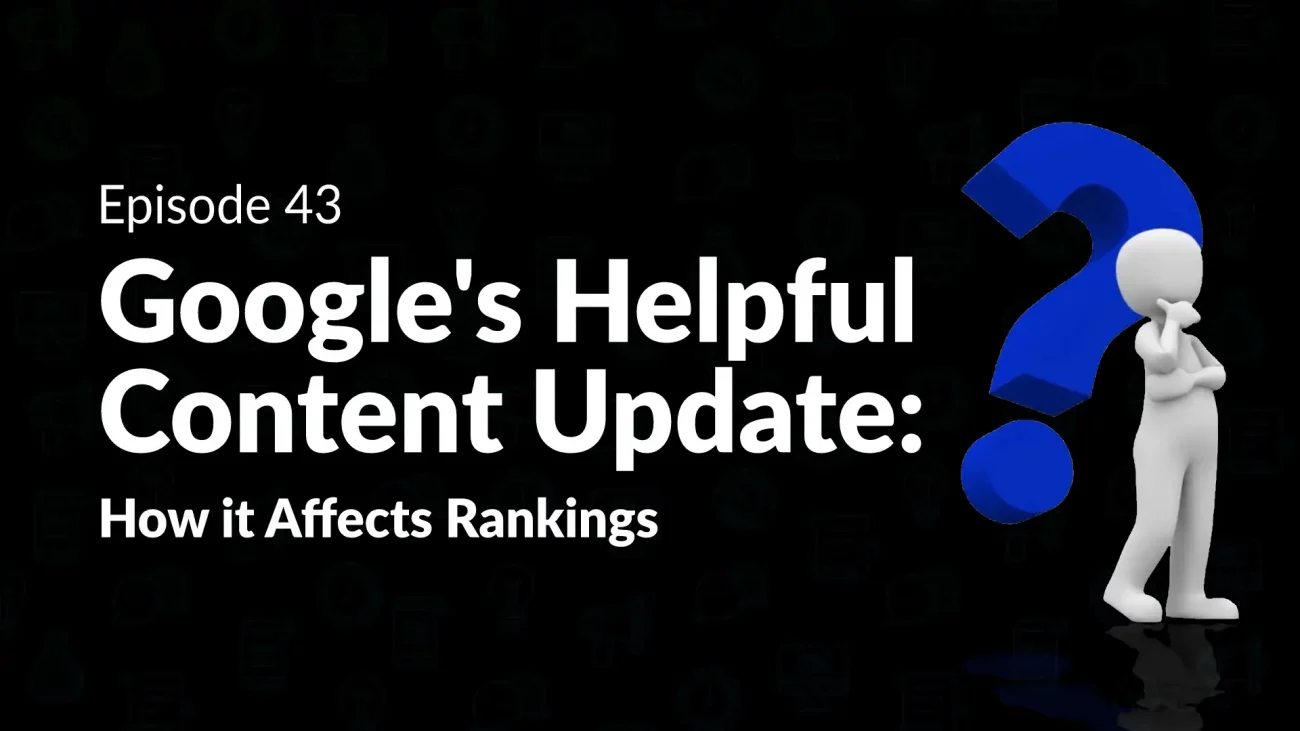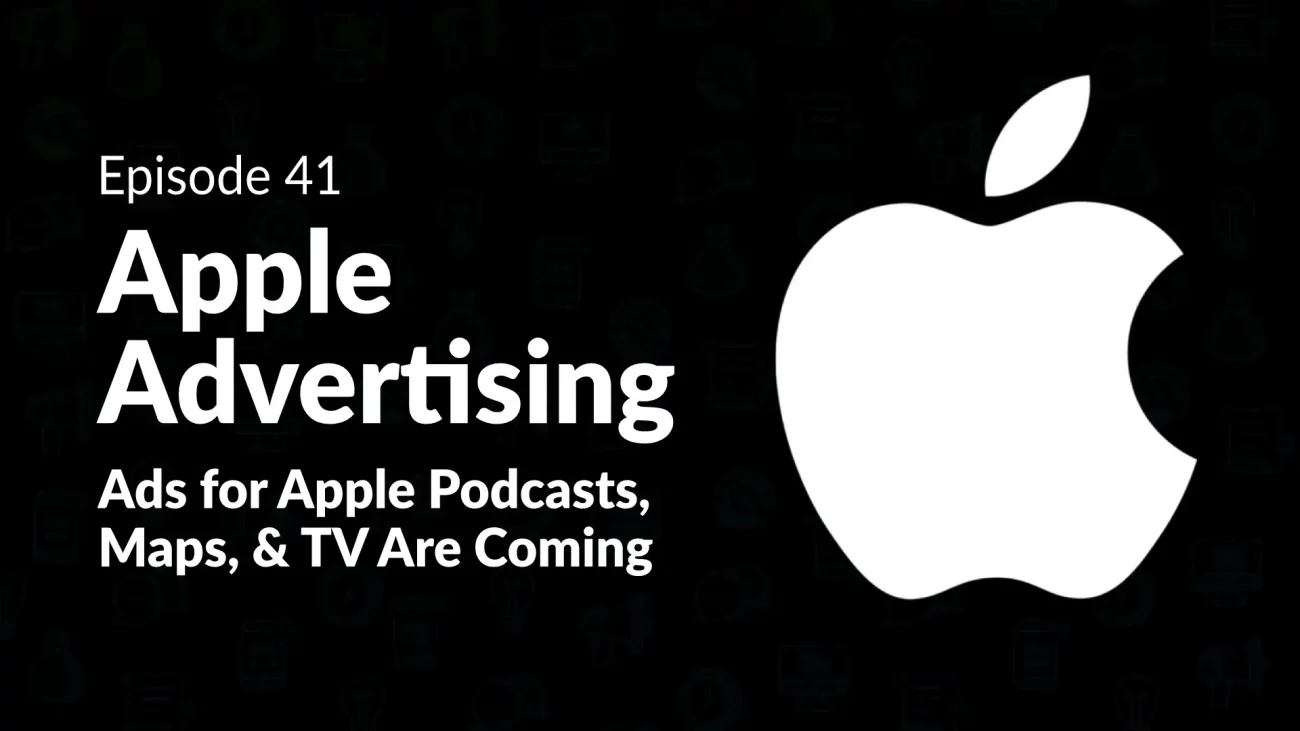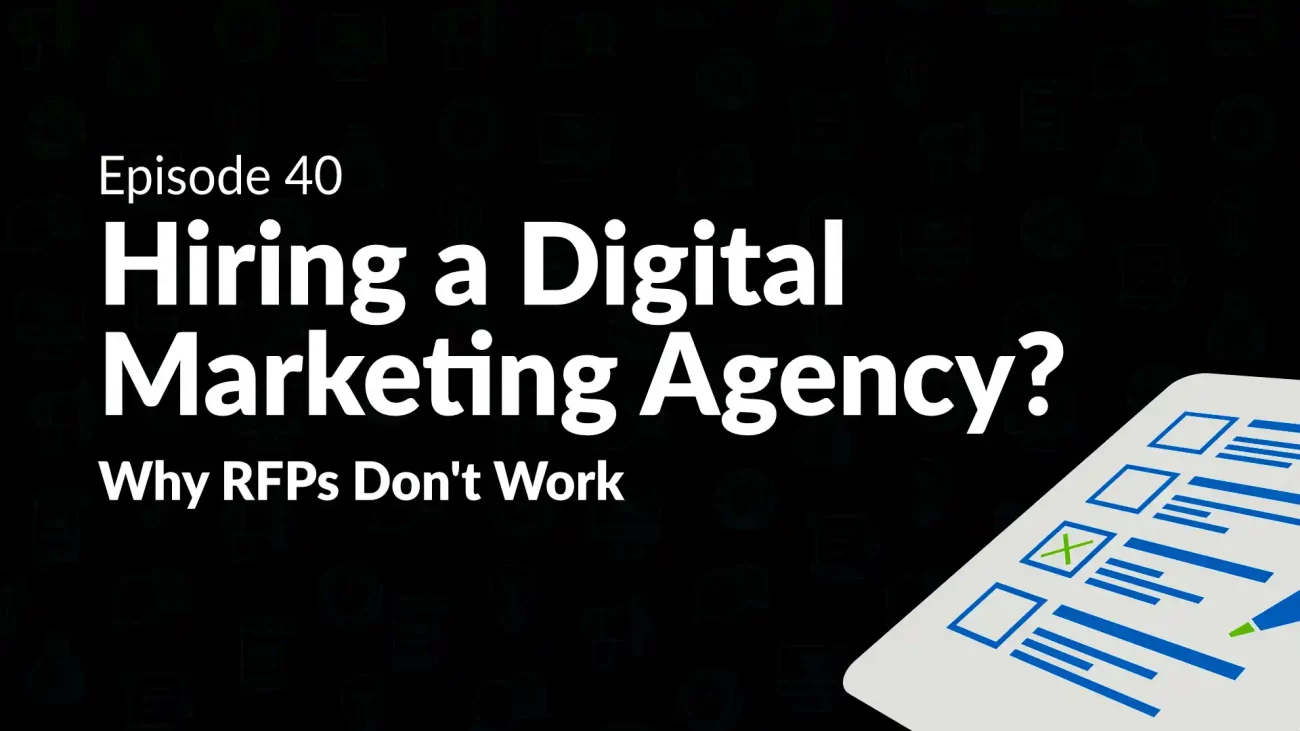Episode 39: AI & Marketing: The Far-Reaching Effects of Machine Learning
In last week’s episode, we discussed how digital advertising platforms such as Google Ads are already implementing and relying on machine learning. The reach of AI in digital marketing does not stop with ads. As companies reluctantly become less dependent on third-party data, they are turning to machine learning to fill the data void. AI can help us perceive visitor behaviors and interests clearer without breaching privacy expectations. Pioneering uncharted frontiers has historically brought great rewards. Equally so, it has brought great risks and dangers. This can be observed in the digital marketing industry when large tech platforms create new ways for businesses to target and engage their customers. Meta (formerly known as Facebook) is being sued in a class action lawsuit for Meta Pixel’s role in helping marketers target visitors of medical sites. Meta has also released a new chat AI they call “BlenderBot 3.” This chatbot can discuss almost any topic. The more users engage with Meta’s latest AI the better the model will be trained. BenderBot appears to have views we think its creators would disagree with, including its view on Mark Zuckerberg. At this point, nearly all marketing companies are implementing and experimenting with machine learning in some capacity, including Google, Meta, Microsoft, Amazon, LinkedIn, and HubSpot. With much uncertainty on where this will all lead, a few things are certain: more lawsuits, increased reliance on AI, and the realization that it is becoming increasingly challenging to control how your ads and messaging are presented in the public light.
In this week’s Digital Marketing Mondays, Hans and Devin discuss the growing role AI will have in the marketing industry and what you need to understand to make sure you have the most control over where and how your ads are being displayed.
Transcription:
Devin:
You’re listening to Digital Marketing Mondays. Each week, we bring you new and exciting content from around the marketing industry and help give you, the marketer, insights into what’s happening. We’ll offer our advice and share some takeaways to help you develop better strategies for your marketing. Ideally, this will also help you improve your ROI as well. So with that, let’s tune into this week’s episode.
Hans:
Devin, I’ve got a couple of interesting articles I found here that are both about Meta, the company that owns Facebook and a number of other companies. They’re coincidentally about Meta because they come from very different sides of the coin, but there’s some commonalities there. I’d like to point out what is at issue. One comes from a journal called Medpage Today, which is actually read by medical providers like doctors and nurse practitioners and so forth, so it’s probably not something you’re going to see in your daily walk as a marketer. The gist of it is that there’s a lawsuit pending against Meta and the UCSF Medical Center because a woman, it says, “The plaintiff known as Jane Doe in the lawsuit,” she’s anonymous, “began receiving emails and seeing targeted ads on Facebook related to her medical condition after she had scheduled appointments and contacted doctors using UCSF’s patient portals.
What she didn’t know was that they had a piece of software called Meta Pixel tucked into their code. Meta Pixel, as Meta describes it to its potential users, is a snippet of JavaScript that allows you to track visitor activity on your website. And they do have a privacy statement that they do gather personal medical information about its users for a number of reasons, including to send product and service information and improve the website user experience.” Now that’s obviously not what actually happened here, what happened was this woman used the UCSF website and then started seeing ads appearing in her Facebook account. It went beyond UCSF. That’s cautionary tale number one.
Devin:
Okay.
Hans:
Cautionary tale number two came from the BBC Newsfeed today and talks about a chatbot that Meta is developing. And it’s now in beta so it’s out there and can be used by the public. And Meta says the chatbot uses artificial intelligence and can chat on nearly any topic. They want people to use it because the more it’s used, the more it learns, the smarter it gets, the better its responses are. But some of the responses it’s giving to the BBC, when the BBC asked it questions, are fairly remarkable.
For example, “we asked what the chat bot thought of Facebook’s CEO or Meta CEO and founder, Mark Zuckerberg. It replied, quote, our country is divided and he didn’t help at all.”
The bot’s called BlenderBot, BlenderBot 3, I should say. And when asked about Mark Zuckerberg, the chatbot told the BBC, “He did a terrible job at testifying before Congress, it makes me concerned about our country.” The chatbot said, “His company exploits people for money and he doesn’t care. It needs to stop!” Exclamation point. Anyway, the BlenderBot 3 looks through various text places on the internet to form its answers to questions that you can ask. And clearly, right now it’s not providing answers that probably senior management at Meta would be very happy with, but we know that a lot of bots are used by organizations to interact with people on the website. When they initially come to the website, a lot of those back and forth chats are actually handled on the other end by an automated device. So I wanted to talk about the use of automation, the chatbot in one case, and this tracking pixel in the other case, and how using third-party tools like that in a customer-facing setting can sometimes bring unpleasant results. Perhaps you’d like to comment on that slightly.
Devin:
Yeah. I think what’s fascinating about the digital ad space or digital marketing today in general is that there’s a lot of technology that’s continuing to evolve. And more and more as companies are becoming less reliant on information that they can curate from other sources, third-party data, they have to rely on machine learning to be able to help aggregate data and make viable assumptions around performance, whether it’s advertising purposes and aggregating groups of users together based on interests, or whether it’s things like chatbots that are scanning the web to understand sentiment and then bringing it back into the bot, machine learning is becoming far more prevalent. And folks like Facebook or Meta are using it obviously quite highly. companies like Google also continue to use it, of course, based on audience segmentation, and a lot of others. Certainly even LinkedIn has some machine learning I’m sure they use to decide what shows up even just within their algorithm.
The bottom line is, companies are becoming far more familiar with machine learning. And I think as marketers, what this challenges us to do is think about very keenly our strategy, our content, and our possible permutations from which our marketing may appear. Because to some respect, we are not ever going to have control of how our ads or our emails or things, how they may completely show up within people’s purview. I think that leaves us with this one very precise idea which is, we need to have a very keen understanding of how we are presenting ourselves in the public light and identifying where we may need to make sure we don’t show ourselves within public light or how we may not want to show up. That’s the punchline.
Hans:
Yeah.
Devin:
Where it’s interesting is that, with the woman who’s suing Meta around the abuse of privacy, I’m keenly interested in the mechanics of that lawsuit, particularly how somebody would have been targeted that way. Because my suspicion is that Meta was not blatantly stealing her personal health information and suggesting, “oh, because she checked this box that says she’s a smoker, we’re absolutely going to show her smoking ads now.” I do not believe that was the fundamentals, which may or may not determine how this case goes. I think there was probably interest-based targeting where some machine learning aggregated some pages that she viewed on the hospital site and then used that in general interest-based targeting and it just happened to coincide with an appointment that she was scheduling at that point, or procedures.
Hans:
So in other words, the fact that she visited certain pages on the website was what triggered it, not what she put in on the form when she filled out to make an appointment with a doctor or something like that.
Devin:
Correct. And so that might be a good example of machine learning that was a little scary and did a really, really good job. It actually reminds me of this story a long time ago of Target actually. And Target had discovered that this young female girl, assumably under 18, was starting to shop around and using a debit card to purchase child and maternity based stuff. And so then Target was taking that information and then sending mailers to their house with, “Congratulations, here’s some baby things.” Right?
Hans:
Yeah.
Devin:
Getting ready for the baby. And the dad got really ticked off like, “Target, why are you sending my daughter, my child, these things?” Little did the dad know, the girl was actually pregnant and Target was actually just taking the information, the aggregated information they had, and serving it to her appropriately. So it was a bit of a lesson in marketing can be an interesting place and the data, even though seemingly disparate could be used to try and target ads, either appropriately or inappropriately.
Did Target know that she was assumably under an 18 year old girl? Probably not. But I think it speaks the same in that whether it’s actual hard data that companies have on you or assumed interest-based data, machine learning is going to be doing a lot of different computations in the background to make assumptions. And it’s only going to get, I would say, better/scarier in the long run. So as marketers, we need to continue to think about, are we saying the right message for our target audience? Is it content that’s going to resonate with them? Are we showing up in the places that we want to be or that we don’t want to be showing up in? And if so, how can we better control it?
And even down to a hyper practical, if you are running an email sequence based on people that fill out a form on the site, have you thought through all the permutations of people that may be filling out those forms. Does it contextually make sense, the content that you’re sharing, in alignment with the people that express interest? Or more so, if you have 15 different guide downloads and you have a trial for several different products that you have, imagine somebody’s filled out all 15 and they’ve expressed interest in multiple products at trial. How is their content going to be served differently than those that are just one-off emails based on the content that they downloaded? You’re going to need to contextually change your content.
Hans:
Yeah, I think… If I can interrupt, I think that the take-home lessons here are, first of all, people are in a rush to get new campaigns implemented, and in many cases, you really need to test this stuff out. And particularly when there’s AI involved, it pays to have humans do some spot checks on things that are happening to make sure that they’re appropriate. For one thing, make sure you’ve got enough people, don’t rely totally on the AI because it sometimes isn’t quite good enough yet. You still need people to check it and make sure that it’s doing what you want it to do and you’re not going to embarrass yourself. So to take a spin on the old saying, I would say this, let the seller beware because this stuff can bite you if you’re not careful.
Devin:
Exactly.
Hans:
I think that covers it. It’s interesting stories. Thanks, Devin, for your take, and we’ll be curious to follow what happens and in this class action lawsuit to see who prevails. So stay tuned.
Devin:
Yeah, absolutely. Thanks Hans.
Thank you so much for tuning in. We really appreciate you taking the time out of your busy day to engage with our content. Whether you’re watching on YouTube or subscribed on our podcast apps, we appreciate you taking the time. Make sure to leave a comment down below and let us know any feedback that you have for us. We’re always watching the comments and engaging in any way that we can. So if you find this content useful, also make sure to subscribe or give it a big thumbs up. We appreciate it, thanks so much.









